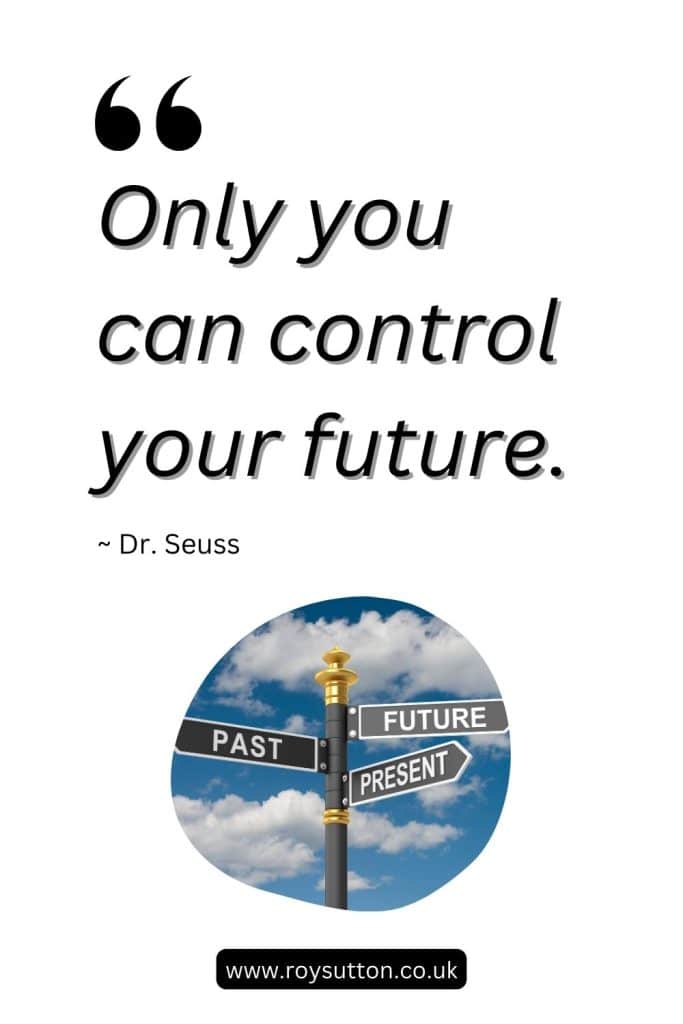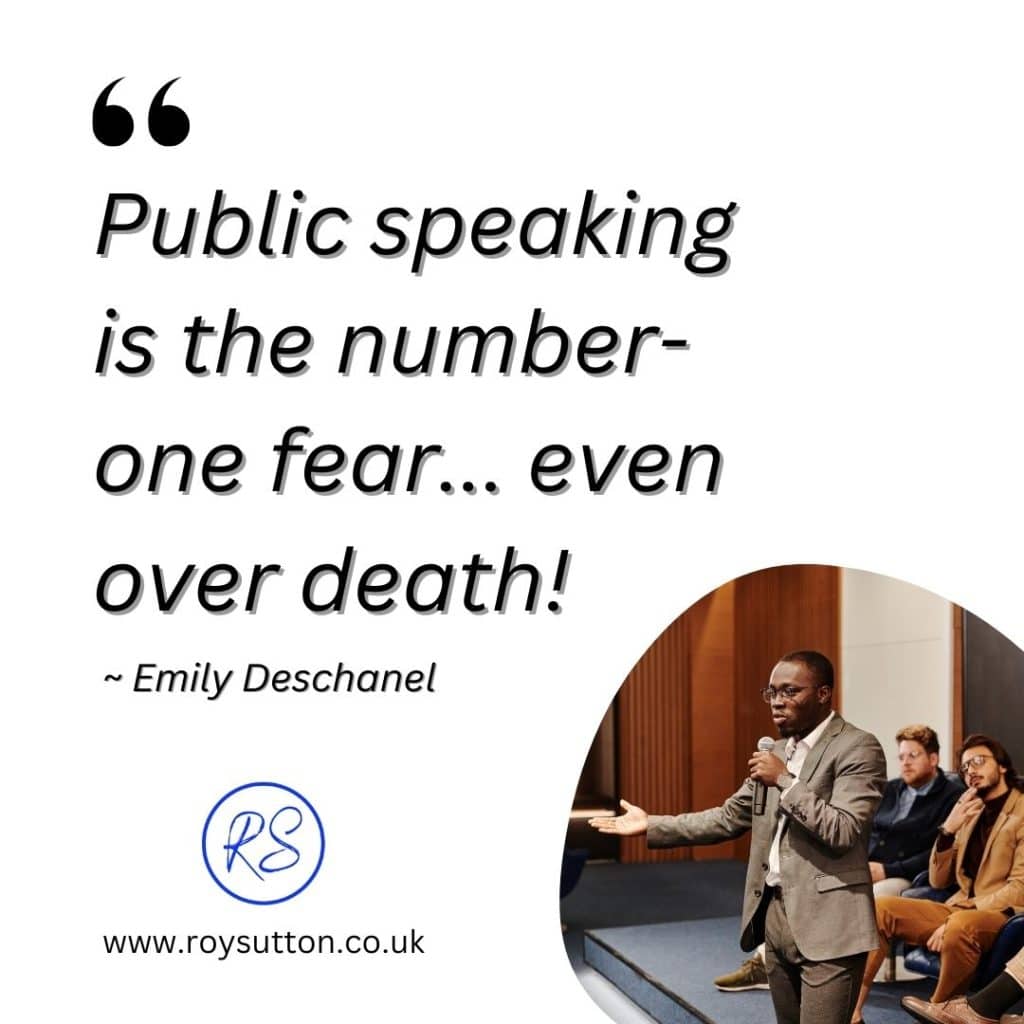
You’ll be as happy as you choose to be. You might not think so, but that is a fact.
Yes, life can be challenging. Yes, life can be full of frustrations and disappointments. And yes, other people can drive you nuts at times.
No one’s life is perfect and everyone has problems. They’re facts too.
However, your level of personal happiness will be dictated by how you choose to look at life.
You can let life’s challenges make you feel miserable or you can refuse to let anything get you down.
Just say to yourself, I’m going to be happy and nothing is going to stop me.
You’ll find that being happy isn’t as hard as it appears to be at times.
Here are 13 ways that will help you increase your sense of personal happiness and improve your life too:-
Tips for improving your personal happiness
1. Talk to yourself positively:
One of the greatest contributors to unhappiness is what’s going on in our heads.
Everyone is prone to self-doubt and feelings of not being quite good enough.
Everyone worries about being found out in their job.
It’s easy to assume that in some way you’re not very good at what you do and you think eventually someone will notice. Have you had that experience dear reader?
We all struggle to appreciate that we’re actually better than we think we are and that if we really couldn’t do the work for which we are paid, someone would have noticed already and they would have said something.
Negative self-talk can grind you down. So, stop it now.
Replace negative self-talk with positive self-talk.
Tell yourself constantly that you’re better than you think you are and that you have every reason to like yourself.
And adopt this saying as your mantra:
I’m as good as anyone and I will show them all that I’m better than most!
Repeat it to yourself frequently and whenever even the slightest hint of doubt pops into your mind.
2. Value people:
Your social network, i.e. the people with whom you interact, and your relationships are essential to your happiness.
Human beings are social animals. We’re not solitary creatures like cats. We need other people, frustrating as some of them can be at times.
Remember we’re all different. We’re all individuals. So accept people for who they are and what they are. Everyone has many sides to their personalities. No one is perfect.
So look for the good in people and don’t judge their less flattering sides too harshly. Never forget, we all have a less flattering side.
However, keep away from personality clashes and arguments. Let go of any resentment you may feel towards individuals. Just remember they’re not perfect, just like you.
If an argument seems inevitable, seek first to understand and then to be understood.
By understanding the other person’s point of view and why they feel the way they feel, you just might find you get along with them so much better.
And even if after you’ve listened carefully, if you still think they’re wrong, so what?
You can always agree to disagree.
You don’t have to prove you’re right and they’re wrong.
It doesn’t have to be about you proving you’re right all the time.
Peace and harmony are of much greater value to your happiness than being proved right.
So just let it go.
3. Be grateful:
Being grateful for whatever you have, is an important part of your happiness.
Being thankful is a great attitude to develop.
If you think about it, I’m sure there will be at least as few things for which you can be truly thankful. Simple things like having a laugh with a friend whilst having a coffee or a meal.
They don’t have to be big things.
Little things that put a smile on your face are far more important to your personal happiness than any amount of material possessions.
In fact, material possessions don’t make you happy at all. Mostly the resulting clutter they create is just a source of stress and extra work.
Take the time to thank those people who provide you with even the smallest things. Making a point of saying thank you will help you realize just how abundant your life is in reality.
4. Avoid doom and gloom:
The media tends to focus on bad news.
Unfortunately, bad news attracts more attention than good news and media channels are focused on ratings. They make money from eyeballs watching and ears listening.
They’re in the business of making money not cheering you up, so they’ll focus on bad news always.
It is a fact that most news is depressing and stressful.
With 24-hour rolling news channels, our lives are filled with a lot of stuff that can fill us with doom and gloom, if we’re not careful.
Watching, listening to, or reading the news will detract from your personal happiness.
So, if the news is just a source of doom and gloom then it’s a good idea to get less of it, don’t you think?
Switch it off and find something else to do that will cheer you up.
5. Manage your time wisely:
Your time is precious and it should be used and managed wisely.
Just because someone expects a piece of your time doesn’t mean they’re entitled to it.
Only you can judge whether they’re worthy of your time. And it’s perfectly reasonable to say “No!” if you think that’s appropriate.
No one has an unlimited amount of time. We all have just 168 hours per week. So we all must make the most of our time because time is far too important to waste.
If someone requests a piece of your time then make sure they have a very good reason to justify it. Otherwise, just say No politely but very firmly.
It’s your life, so live it your way.
6. Find something to make you laugh:
Let’s face it, life is far too short to be serious all the time.
Occasionally we need to laugh to alleviate our stress levels.
Laughter is the best medicine, or so they say. And I think it’s true. A good laugh can cheer you up.
So make sure you enjoy a good laugh at least once a day. It may be watching a sitcom you love or a funny animal video on YouTube. Whatever puts a smile on your face then that’s fine. You need to smile because it will help you relax.
It may be a funny joke that makes you laugh.
And if that happens, remember to share the joke with family and friends. That way you get to laugh twice. Once when you hear the joke and again when you share it.
Laugh and laugh vigorously every single day.
7. Say how you feel:
If people matter to you then be sure to let them know occasionally.
Don’t be afraid to communicate your feelings, affections, friendship and passion to people around you.
Being open about your feelings is not a sign of weakness, it’s a sign of strength.
It’s a sign that you’re confident enough in yourself to let people know what they mean to you.
It’s a sign that you recognize how important it is for people to know that they matter to you. They’ll appreciate it and that will enhance the bond between you.
8. Avoid negative emotions:
Pent-up feelings of anger and frustration are bad for your health.
Yes, we all feel angry occasionally but suppressing it is counter-productive.
If you’re not happy about something it’s better to say so.
Occasionally you may need to say so forcefully too. However, never say it in a way that’s mean and hurtful. That’s just being unpleasant.
And if you do say something which you later recognize as mean and hurtful then apologize. Never be afraid, or too proud, to apologize.
You won’t be the first person to say something you later regret but don’t compound the offence but failing to offer a sincere apology.
At the very least that will show you’re big enough to recognize when you’re in the wrong.
If you can learn to express your anger and frustration in a way that will not cause injury or hurt to anyone then you’ll be on the road to being a very decent human being.
9. Have a sense of purpose:
It’s important to have a sense of purpose.
To work each day at something in which you excel and which gets you out of bed in the morning.
Working hard at something you love can bring you great personal contentment.
Your work is your contribution to society and potentially the legacy you leave behind.
For instance, John Lennon left a wonderful collection of songs that we still listen to today almost 40 years after his death. That’s a fantastic legacy.
Work gives you a sense that you can finish tasks.
Work is a source of satisfaction when you take on a challenge and use your skills and know-how to complete it. In this way, you grow in character.
Through your work, you use your time profitably and when the working day is done you feel you’ve earned your rest and recreation.
Work well done, with a sense of purpose, will make you feel good about yourself.
10. Never stop learning:
Learning does not finish when you leave school or college. Learning is a lifelong process. And it does not necessarily involve formal tuition.
You can be self-taught and learn by doing.
You can read books and watch instructional DVDs or video tutorials on YouTube.
You can listen to audiobooks and podcasts in your car or whilst travelling on public transport.
So be a committed student and work constantly on being a master of your craft.
Working constantly on achieving mastery will increase the value you can offer in the workplace and it will make you a very attractive proposition in the job market.
Learning is a joyful exercise, particularly if it’s a subject you love.
The more you learn, the greater will be the number of skills you can offer. The more skills you have the more value you add. So, learn something new every day.
And remember; learning will also broaden your horizons. Learning is a positive experience, so never stop learning.
11. The power of faith:
Faith can be a great comfort in times of trial. Believing there is some higher power helps us to appreciate our place within the universe. We are nothing more than specs of dust in a great cosmic cloud, or at least that’s the way it seems.
Faith adds discipline to your life. Whichever faith you choose is not important. Well, I don’t think so anyway. However being part of a spiritual group with its singing, sacraments, chanting, prayers and meditations encourages inner peace and personal well-being.
It also encourages the idea of service and putting others first.
Never underestimate the power of faith.
12. Minimise your exposure to pollution:
Pollution comes in many forms but it all takes its toll on your happiness and well-being.
Life is full of toxins, hazardous places, loud noises, light pollution and much more.
Minimize your exposure to these negative elements because they’re an assault on your senses and they’re not good for you if you’re over-exposed to them.
13. Take regular exercise:
A sedentary lifestyle is not healthy for anyone.
Our bodies were built for movement. So exercise daily.
That doesn’t mean you must go to the gym. Neither does it mean you must participate in formal sports teams or clubs.
You can exercise in simple ways like running, jogging, a brisk walk or even an informal game of football or tennis with friends in the local park.
Even if you’re just taking your dog for a walk then that’s exercise too.
Alternatively, perhaps you could walk to and from work, if possible, rather than using your car or public transport.
Just do what your body was made for and you will feel a bit more alive. Regular exercise improves your health and well-being.
Conclusion:
Today’s underlying message is that you can choose to be happy or not. It all depends on how you choose to look at life and the slings and arrows that life sends your way.
There’s nothing to be gained by being miserable and a sense of personal happiness is better for your health and well-being.
So choose to be happy and develop habits that will lead you to a state of personal happiness.
It’s not easy of course, and it does take some work but it’s well worth the effort.
Please share this post with your friends:
If you found this blog post interesting and useful then please share it on social media with your friends. When you share, everyone wins.
Please share it now and I’ll be ever so grateful. You’ll be helping a keen blogger reach a wider audience.
Thank you for your support.

Other articles you might also find interesting:
- 7 tips for becoming your best self
- 11 tips for improving quality of life now
- What is life’s most precious resource?
- Daily Habits of Successful People
- How to find the right job for you: Simply Explained
- How to spot a liar and be your own lie detector
- Self-promotion and why it matters if you want success
- 21 things you need to know in life to avoid its pitfalls
- 9 tips for getting the most from your work
- How to sell anything to anybody
- Wealth Creation Strategies
- Brian Tracy: Habits of Success
- Why you should make a difference in life
- Why enjoying yourself can never be a waste of time
- Why passion is the key to success
- The importance of friends to our lives
- How to deal with criticism in the workplace
- The secret to happiness
© Mann Island Media Limited 2025. All rights reserved.
















































